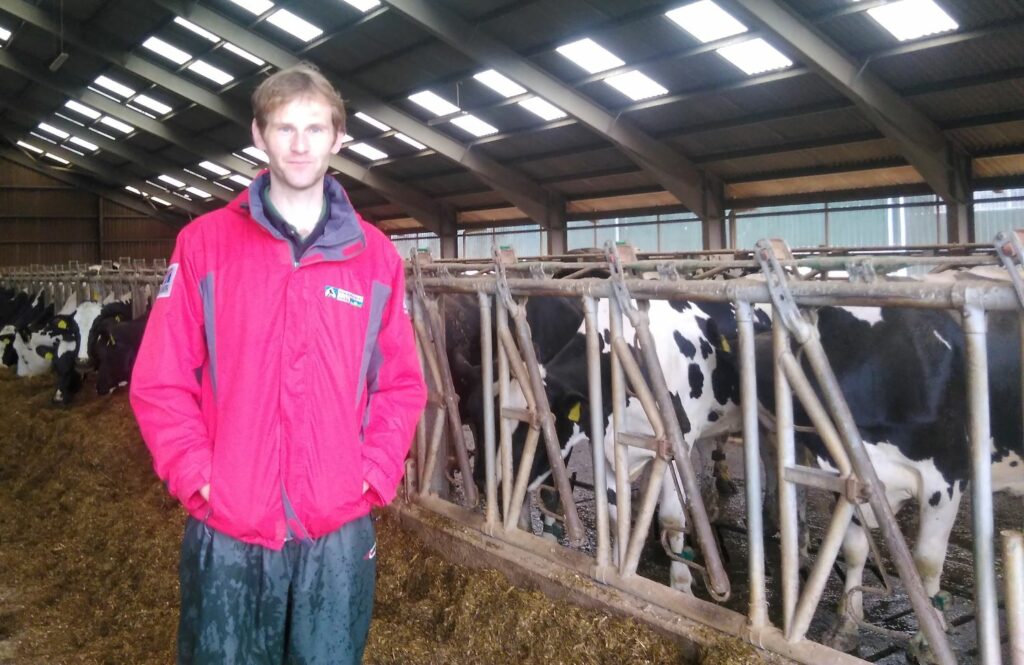Surveillance data shows Mycoplasma bovis is more common than expected
14th November 2022
Testing and prevention of Mycoplasma bovis is of increasing importance in both beef and dairy sectors as new surveillance data reveals the disease is more common than previously thought.
M. bovis is a bacterial disease that causes various health issues in dairy and beef cattle, such as mastitis, pneumonia, sore joints, swelling and ear infection (otitis). It is also responsible for a range of chronic underlying health conditions that can have a severe impact on the welfare and productivity of the herd.
The results of a nationwide surveillance programme suggest that M. bovis is most easily detected via bulk milk serology testing, which is more sensitive than other forms of testing.
For the last few years, Graeme Fowlie, director of Meadows Vets in Aberdeenshire, has suspected that M. bovis is more widespread than most believe. Confirming his theory, surveillance data from vet practices in England, Scotland, Wales and Northern Ireland shows the disease is present in every region, affecting both dairy and beef cattle.
“It is probably present in your area, so you should be aware of it,” Mr Fowlie warned farmers.
Vets taking part in the surveillance programme received free M. bovis tests to use in both symptomatic and seemingly healthy herds. The programme ran across 41 farms in the UK, out of which 18 tested positive, 17 negative, and six were inconclusive or void.
Other than providing information on the prevalence of M. bovis in Britain, the results also revealed that some forms of testing are more sensitive than others. For example, of the 25 blood tests conducted, 52% came back positive and 48% were negative or inconclusive despite being conducted on farms with symptomatic cattle.
On the other hand, the five bulk milk serology tests all turned out positive, suggesting good sensitivity. Whereas, the 11 PCR tests conducted mainly of bulk milk samples failed to detect the disease in a single animal.
Ben Pedley, farm clinical director at Willows Farm Vets in Cheshire, emphasised the importance of testing in M. bovis control:
“In the past two years we have found M. bovis on a number of farms after PCR testing lung samples taken post-mortem from pneumonia cases. Since diagnosing the infection, calf pneumonia on these units has been greatly reduced via management changes including specific vaccination programmes for Mycoplasma.”
According to Mr Fowlie, surveillance data from Meadow Vets align with the results of the study: “We have been using blood tests on calves over five months old to screen herds. Dairies could also be screened via bulk milk serology. Sick animals can be identified with PCR testing of either nasal swabs, post mortem material, joint fluid or milk samples.”
Mr Fowlie said that using the above tests in the past two years has returned more positive results than more traditional forms of testing in the previous two decades. Hence, the team suspects some of the results from less sensitive bacterial culture testing were in fact false negatives.
“One of the biggest problems with M. bovis is that it’s very hard to treat – it doesn’t respond to many common antibiotics, so prevention is much better than cure,” Mr Fowlie stressed.
“That means screening herds via blood/bulk milk serology testing and PCR testing of sick animals/post-mortem samples to confirm the presence of the disease initially and have confidence in those results.”
He also reminded farmers of the importance of following stringent biosecurity measures and implementing changes in herd management as per the vet’s recommendations.
Vaccines have also recently become available in the UK for controlling M. Bovis, thanks to the collaborative efforts of Meadows Vets, the UK Veterinary Medicines Directorate, and the Dutch pharmaceutical firm Kernfarm.
“Vets can now prescribe a multi-strain vaccine in the UK under the Cascade system. When combined with appropriate testing, this will enable farmers to take a proactive and informed approach to disease management,” Mr Fowlie concluded.
The surveillance programme will continue to run throughout winter, providing more free tests to vet practices across the UK.

